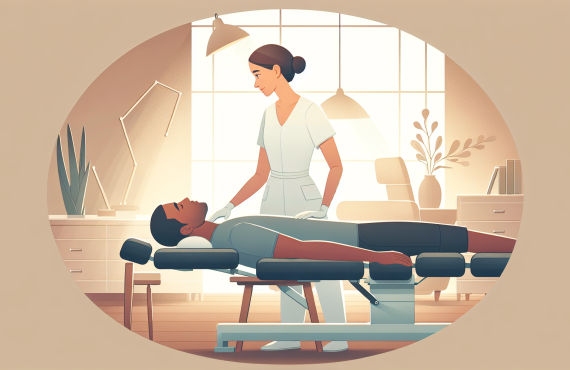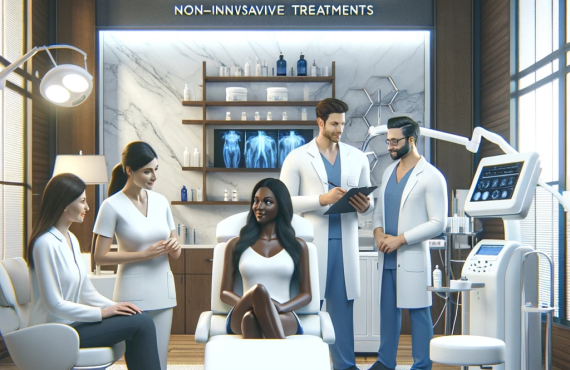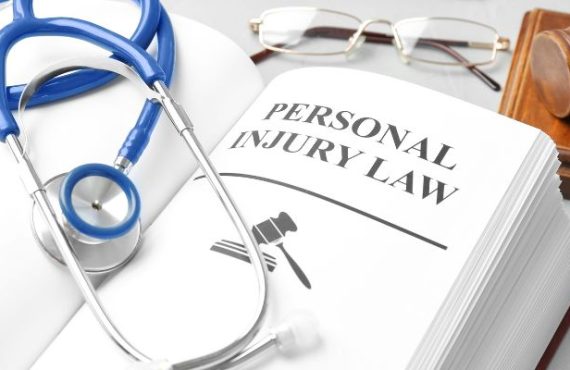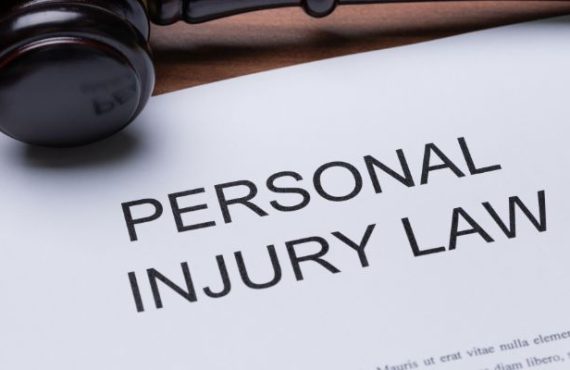So you’re interested in becoming a Personal Injury Chiropractor in Pensacola? Well, you’re in the right place! Pensacola is a wonderful city that offers great opportunities in the healthcare field. To embark on this fulfilling career path, there are a few steps you need to take.
First and foremost, you’ll need to complete a bachelor’s degree in a relevant field such as biology or exercise science. This will provide you with a solid foundation and the necessary prerequisites for chiropractic school. Once you’ve obtained your bachelor’s degree, it’s time to enroll in a chiropractic school that is accredited by the Council on Chiropractic Education (CCE). During your time in chiropractic school, you’ll learn about spinal manipulation techniques, anatomy, physiology, and other essential subjects. After completing the rigorous coursework and clinical training, you’ll need to pass the National Board of Chiropractic Examiners (NBCE) exams to obtain your chiropractic license. Finally, it’s important to gain experience in personal injury cases by working under the supervision of an experienced chiropractor or through internships. This hands-on experience will help you learn how to effectively treat and manage personal injury cases, allowing you to provide the best possible care for your future patients. With dedication, hard work, and a passion for helping others, you can become a successful Personal Injury Chiropractor in Pensacola!

Table of Contents
Education
Obtain a high school diploma or equivalent
To embark on your journey to becoming a personal injury chiropractor in Pensacola, it is important to start by obtaining a high school diploma or an equivalent certification. A strong foundation in subjects such as biology, chemistry, anatomy, and mathematics will provide you with the necessary knowledge to pursue further education in chiropractic studies.
Earn a bachelor’s degree
After completing high school, the next step is to earn a bachelor’s degree. While there is no specific major required for chiropractic studies, it is advisable to choose a field of study that aligns with the sciences or health-related disciplines. This will help you develop a solid understanding of human biology and advance your knowledge in preparation for chiropractic college.
Enroll in a chiropractic college
Once you have obtained your bachelor’s degree, it is time to enroll in a chiropractic college. Ensure that the college you choose is accredited by a recognized accrediting body, as this will guarantee that you receive a quality education. During your time in chiropractic college, you will study a wide range of subjects including chiropractic techniques, anatomy, physiology, pathology, and radiology.
Complete a Doctor of Chiropractic (D.C.) program
Upon successful completion of your chiropractic college program, you will be awarded a Doctor of Chiropractic (D.C.) degree. This signifies that you have acquired the necessary knowledge and skills to practice chiropractic medicine. The D.C. program typically takes four years to complete and includes both academic coursework and clinical training.
Licensure and Certification
Pass the National Board of Chiropractic Examiners (NBCE) exams
After obtaining your D.C. degree, the next step is to pass the National Board of Chiropractic Examiners (NBCE) exams. These exams are designed to assess your knowledge and competence in various areas of chiropractic medicine, including diagnostic imaging, chiropractic techniques, and case management. Successfully passing these exams is a requirement for obtaining licensure.
Obtain state licensure
To practice as a chiropractor in Pensacola or any other state, you must obtain state licensure. Each state has its own licensing requirements, which typically include passing the NBCE exams and fulfilling certain educational and training criteria. It is important to thoroughly research and comply with the specific requirements set forth by the Florida Board of Chiropractic Medicine to ensure you can legally practice in your desired location.
Consider obtaining specialized certifications
While not mandatory, obtaining specialized certifications can demonstrate your expertise in specific areas of chiropractic medicine. As a personal injury chiropractor, you may consider pursuing certifications such as Certified Chiropractic Sports Physician (CCSP) or Certified Chiropractic Rehabilitation Doctor (CCRD). These certifications can enhance your professional credibility and attract potential patients seeking specialized care.
Gain Experience
Complete a chiropractic internship or residency program
To gain practical experience and further refine your skills, consider completing a chiropractic internship or residency program. These programs provide valuable hands-on training under the guidance of experienced chiropractors. They offer opportunities to develop a deeper understanding of diagnosing and treating various conditions, including personal injuries. Many chiropractic colleges offer internships or can assist you in finding appropriate programs.
Work under an experienced chiropractor
Another way to gain experience is by working under the supervision of an experienced chiropractor. This mentorship will allow you to observe and learn from someone with years of practical knowledge and expertise. By working alongside an experienced professional, you can further develop your clinical skills and gain insight into running a successful chiropractic practice.
Join professional organizations and attend seminars
Joining professional chiropractic organizations, such as the American Chiropractic Association (ACA) or the Florida Chiropractic Association (FCA), can provide you with valuable networking opportunities. Attending seminars and conferences organized by these associations will keep you updated on the latest advancements in chiropractic medicine. Additionally, these events often offer opportunities for continuing education, allowing you to further expand your knowledge and skills.
Specialize in Personal Injury
Attend specialized courses and workshops
To specialize in personal injury treatment, it is beneficial to attend specialized courses and workshops focused on this area of chiropractic medicine. These courses will equip you with the necessary knowledge and skills to effectively evaluate and treat individuals who have suffered personal injuries. Look for reputable organizations or institutes that offer such courses to ensure high-quality education.
Obtain additional certifications
In addition to attending specialized courses, consider obtaining certifications that specifically focus on personal injury treatment. Certifications such as Certified Chiropractic Wellness Lifestyle Practitioner (CCWP) or Certified Chiropractic Extremity Practitioner (CCEP) can provide you with enhanced expertise in treating personal injury patients. These certifications will not only deepen your understanding but also demonstrate your commitment to providing the highest level of care.
Gather experience in treating personal injury patients
To become a sought-after personal injury chiropractor, it is essential to gather practical experience in treating patients who have suffered personal injuries. Working closely with personal injury clinics, healthcare providers, and attorneys will offer you opportunities to develop relationships and gain referrals. By treating a variety of personal injury cases, you can refine your skills and establish yourself as a trusted specialist in this field.

Networking and Marketing
Build relationships with attorneys and other medical professionals
Networking with attorneys who specialize in personal injury cases can be invaluable for growing your practice. By establishing relationships with these legal professionals, you can potentially receive referrals for patients in need of chiropractic care. Additionally, cultivating connections with other medical professionals, such as physical therapists or orthopedic specialists, can lead to collaborative opportunities and multidisciplinary care for patients.
Join local business networking groups
Membership in local business networking groups provides a platform to connect with other professionals in your community. These groups offer opportunities for referrals and collaborations, while also allowing you to promote your services to a wider audience. Actively participating in these groups, sharing your expertise, and building genuine relationships can significantly contribute to the growth of your personal injury chiropractic practice.
Develop an online presence through websites and social media
In today’s digital age, having an online presence is crucial for any business, including chiropractic practices. Create a professional website that highlights your services, expertise, and achievements. Utilize social media platforms to engage with potential patients, share educational content, and promote your practice. Consistently updating and maintaining your online presence will help you attract and connect with individuals seeking personal injury chiropractic care in Pensacola.
Keep Up with Latest Research and Techniques
Stay updated with medical literature and research
As a personal injury chiropractor, it is important to stay abreast of the latest medical literature and research in the field. This will allow you to provide evidence-based care and incorporate the most effective treatment methods into your practice. Regularly reading reputable chiropractic journals and attending seminars focused on research updates will ensure you stay informed and continuously improve your skills.
Attend continuing education programs and seminars
Continuing education is essential for personal growth and professional development. Stay informed about upcoming seminars, workshops, and conferences that offer opportunities to learn about new techniques, advancements in patient care, and emerging trends in chiropractic medicine. By actively engaging in these programs, you can continuously enhance your knowledge and stay at the forefront of the industry.
Invest in advanced training and equipment
To provide the best possible care to your patients, consider investing in advanced training and equipment. Advanced training programs can expand your knowledge in specific areas of personal injury care, such as spinal rehabilitation or whiplash treatment. Similarly, acquiring state-of-the-art equipment can enable you to offer cutting-edge diagnostic and treatment options, enhancing the overall patient experience and outcomes.

Maintain Professional Standards
Adhere to ethical guidelines and legal regulations
As a personal injury chiropractor, it is crucial to adhere to ethical guidelines and legal regulations to ensure the highest standard of patient care. Familiarize yourself with the code of ethics established by chiropractic professional organizations and always practice within the boundaries of the law. Demonstrating integrity and professionalism will not only protect your patients but also uphold the reputation of the chiropractic profession.
Maintain proper documentation and patient records
Accurate and thorough documentation is essential for effective patient care, as well as legal and insurance purposes. Develop standardized procedures to maintain proper documentation and patient records that comply with the rules and regulations set forth by regulatory bodies. By keeping meticulous records, you not only ensure continuity of care but also demonstrate professionalism and accountability.
Participate in peer review and quality assurance activities
Engaging in regular peer review and quality assurance activities is vital for professional growth and maintaining high standards of care. Participate in professional groups or organizations that facilitate peer review, allowing you to receive feedback from fellow chiropractors. This collaborative approach encourages ongoing learning, continuous improvement, and the opportunity to share best practices within the chiropractic community.
Provide Excellent Patient Care
Develop strong communication and interpersonal skills
Excellent patient care begins with effective communication and strong interpersonal skills. As a personal injury chiropractor, it is important to listen attentively to your patients, empathize with their concerns, and explain treatment plans in a clear and understandable manner. Building trust and establishing a compassionate rapport with your patients will enhance their overall experience and contribute to successful treatment outcomes.
Create personalized treatment plans for each patient
Every patient is unique, and personalizing treatment plans to address their specific needs is crucial for optimal outcomes. Conduct thorough evaluations and assessments to identify the underlying causes of personal injuries and design individualized treatment protocols accordingly. Combining evidence-based chiropractic techniques with patient-centered care will ensure a tailored approach that maximizes recovery and promotes long-term wellness.
Continuously evaluate and adjust treatment methods
Patient response to treatment can vary, requiring chiropractors to continuously evaluate and adjust their treatment methods. Monitor the progress of patients undergoing personal injury rehabilitation and modify treatment plans accordingly. Incorporate objective outcome measures, such as pain scales or range of motion assessments, to objectively assess the effectiveness of your interventions. By remaining flexible and adapting to each patient’s unique circumstances, you can optimize their recovery and overall well-being.
Manage and Grow Your Practice
Develop a business plan
In addition to providing excellent patient care, successfully managing and growing your practice requires a well-defined business plan. Define your long-term goals, identify your target market, and create a strategic roadmap to achieve your objectives. Carefully consider factors such as financial planning, marketing strategies, staffing requirements, and office management to ensure the efficient operation and growth of your personal injury chiropractic practice.
Hire and train staff members
As your practice expands, hiring and training competent staff members becomes essential to maintain high-quality and efficient patient care. Identify the roles and responsibilities required to support your practice’s growth and select individuals with the necessary skills and qualifications. Implement comprehensive training programs to ensure that your staff members are well-equipped to provide exceptional service and uphold the values and vision of your practice.
Implement effective marketing strategies
Effectively marketing your personal injury chiropractic practice is key to attracting and retaining patients. Utilize a combination of traditional and digital marketing strategies to raise awareness and differentiate your practice. Develop a comprehensive marketing plan that includes online advertising, community outreach, and patient referral programs. Utilize your online presence to share valuable educational content, patient testimonials, and promote the benefits of chiropractic care for personal injury rehabilitation.
Continuously Educate and Improve
Participate in research studies and clinical trials
Engaging in research studies and clinical trials can contribute to advancing the field of chiropractic medicine, as well as enhancing your own knowledge and skills. Consider participating in ongoing research studies or clinical trials conducted by reputable institutions or organizations. By actively contributing to scientific knowledge, you position yourself as a thought leader while promoting evidence-based practice in personal injury chiropractic care.
Collaborate with other healthcare professionals
Collaboration with other healthcare professionals can offer valuable opportunities for mutual learning and comprehensive patient care. Establish relationships with physicians, physical therapists, and other healthcare providers treating personal injury patients. Engaging in interdisciplinary collaborations allows for a holistic approach to treatment and fosters a network of trusted professionals working towards the common goal of improving patient outcomes.
Attend conferences and workshops
Attending relevant conferences and workshops is an excellent way to continuously educate yourself and stay informed about the latest developments in chiropractic medicine. These events provide an opportunity to learn from renowned experts, engage in discussions, and exchange ideas with fellow professionals. By actively participating in these educational platforms, you keep your knowledge up to date and nurture a mindset of lifelong learning.
In conclusion, becoming a successful Personal Injury Chiropractor in Pensacola requires dedication, education, and continuous improvement. By following the outlined steps, you can establish yourself as a trusted provider of chiropractic care for individuals suffering from personal injuries. With a focus on patient-centered care, continual professional development, and effective practice management, you can build a thriving practice that positively impacts the lives of your patients and the community.










































